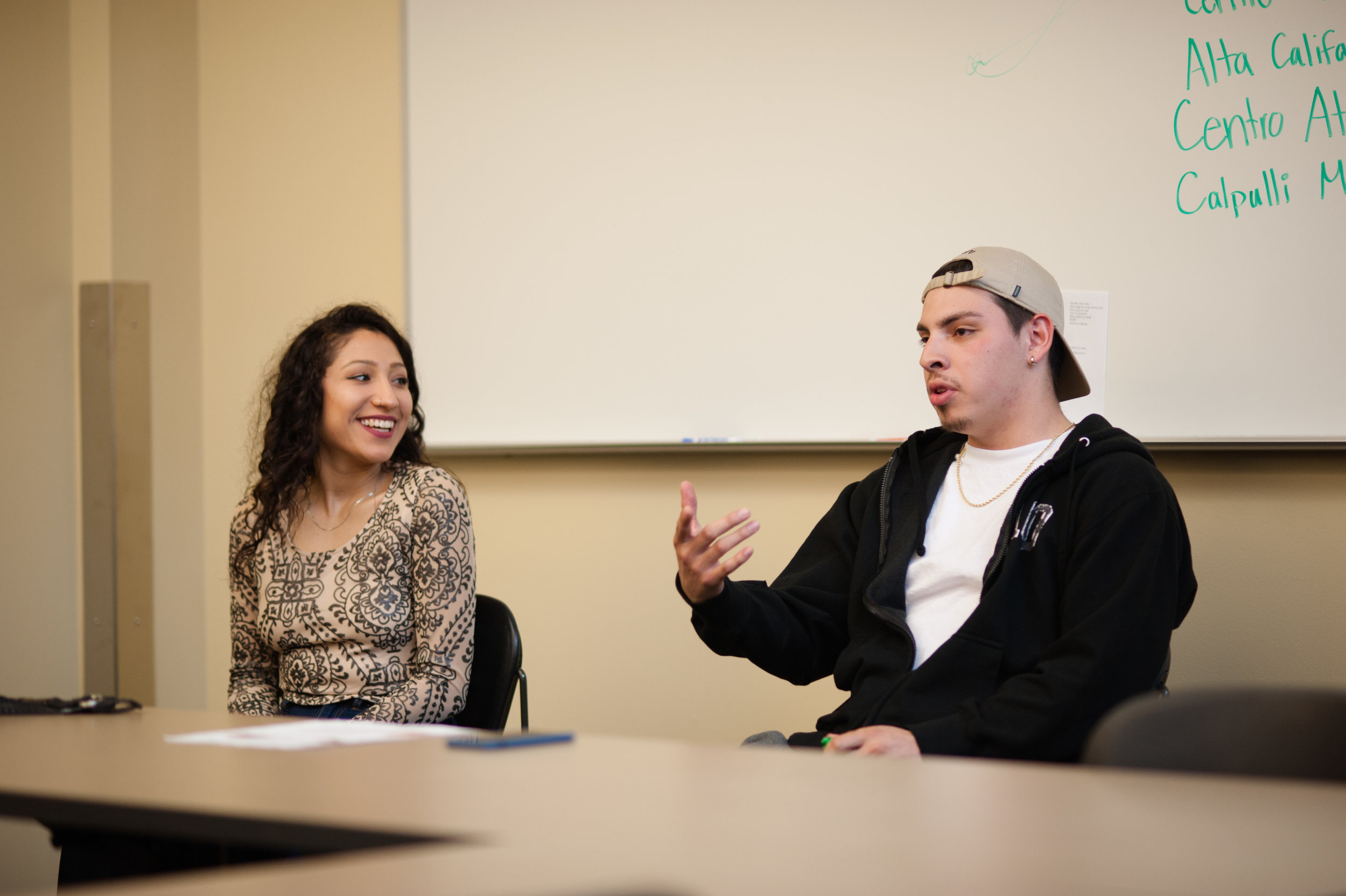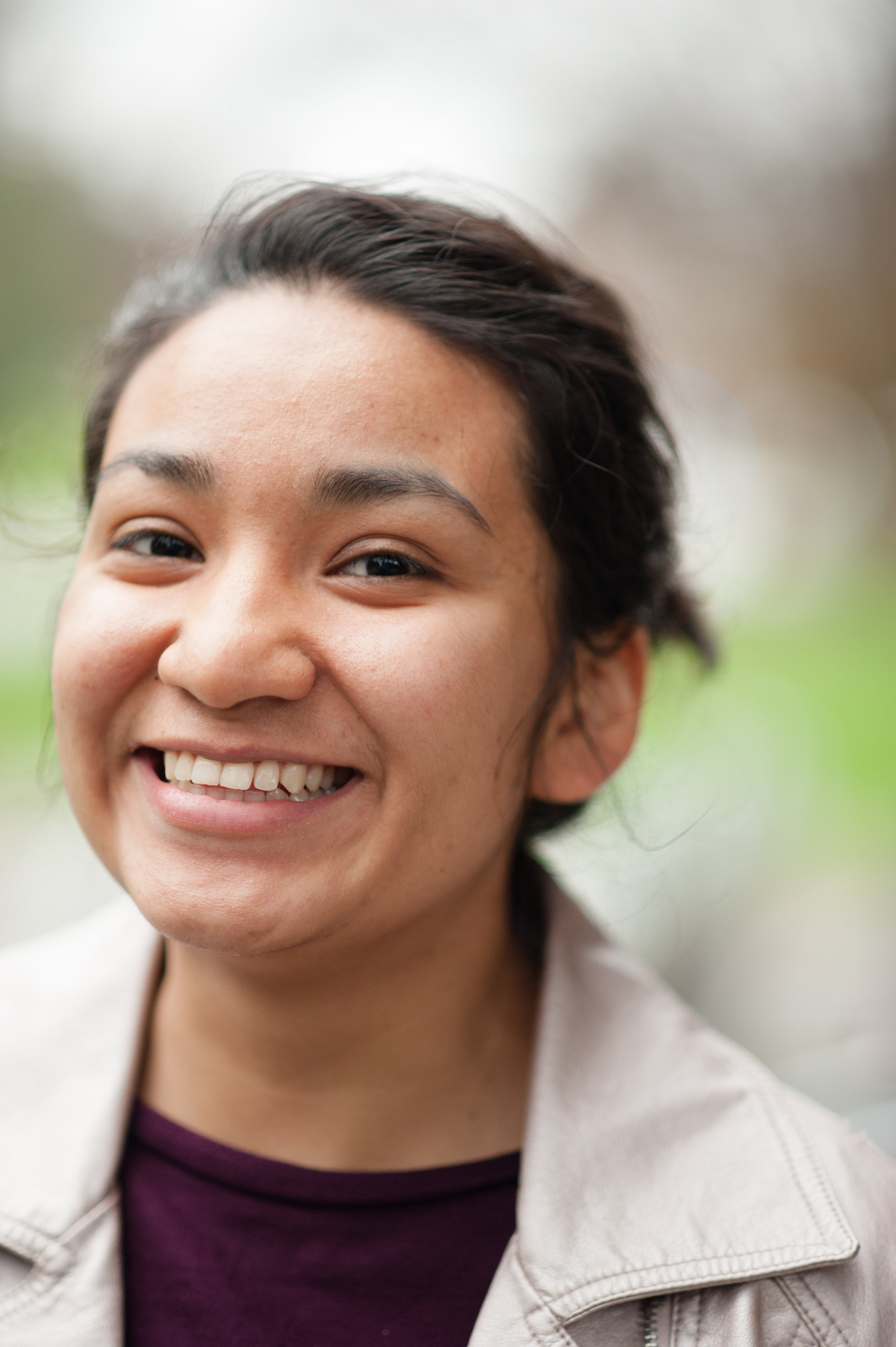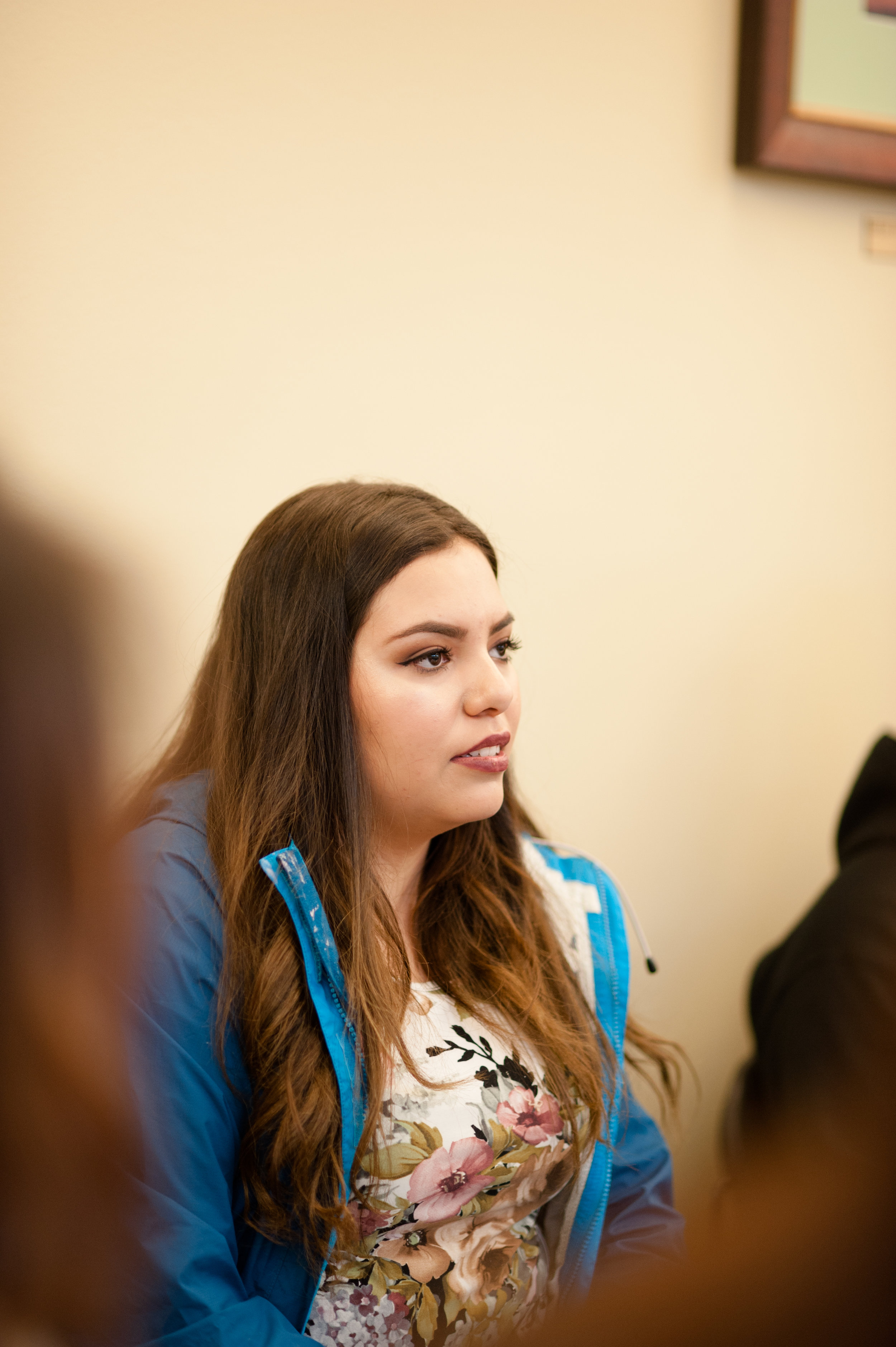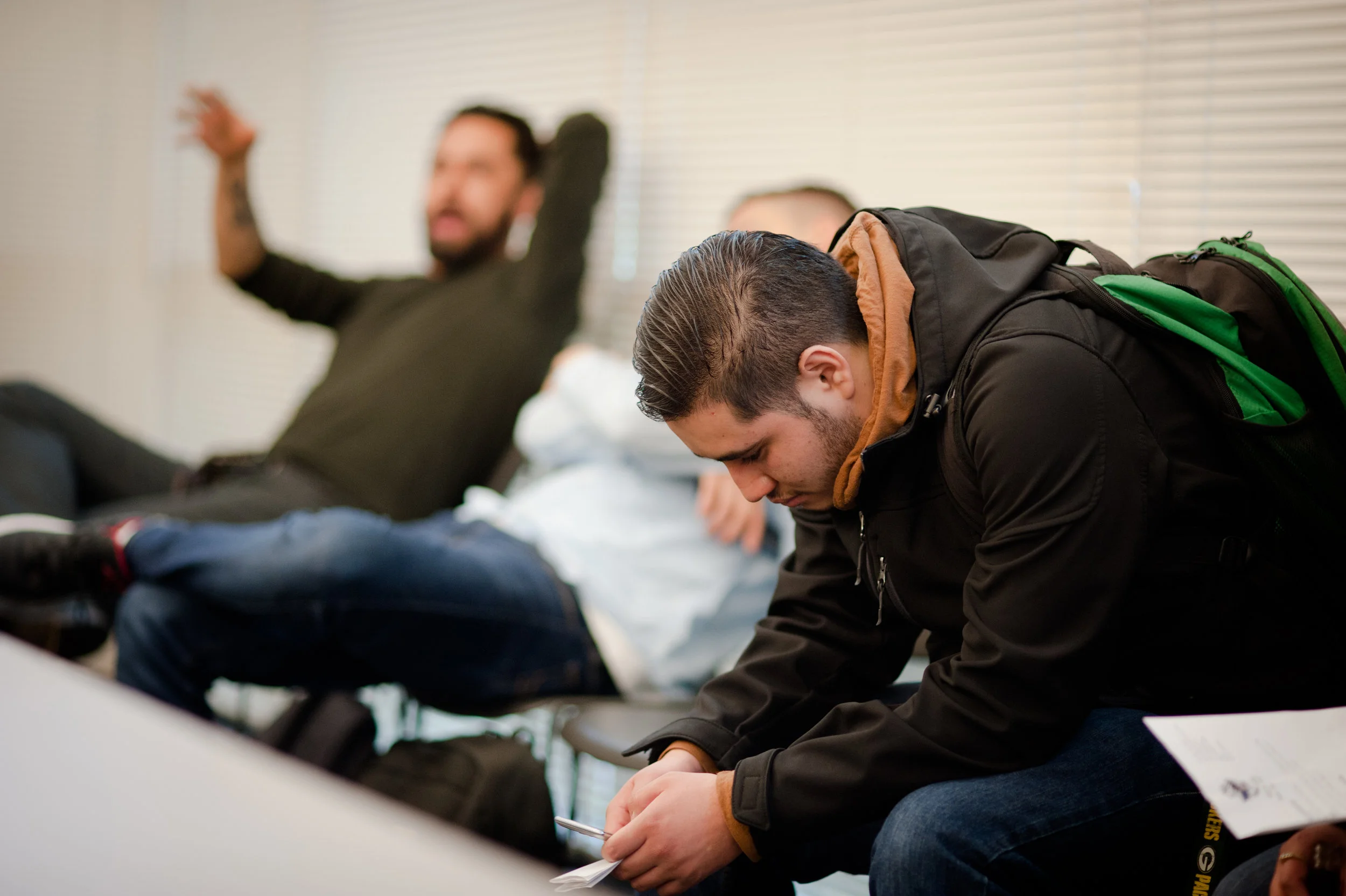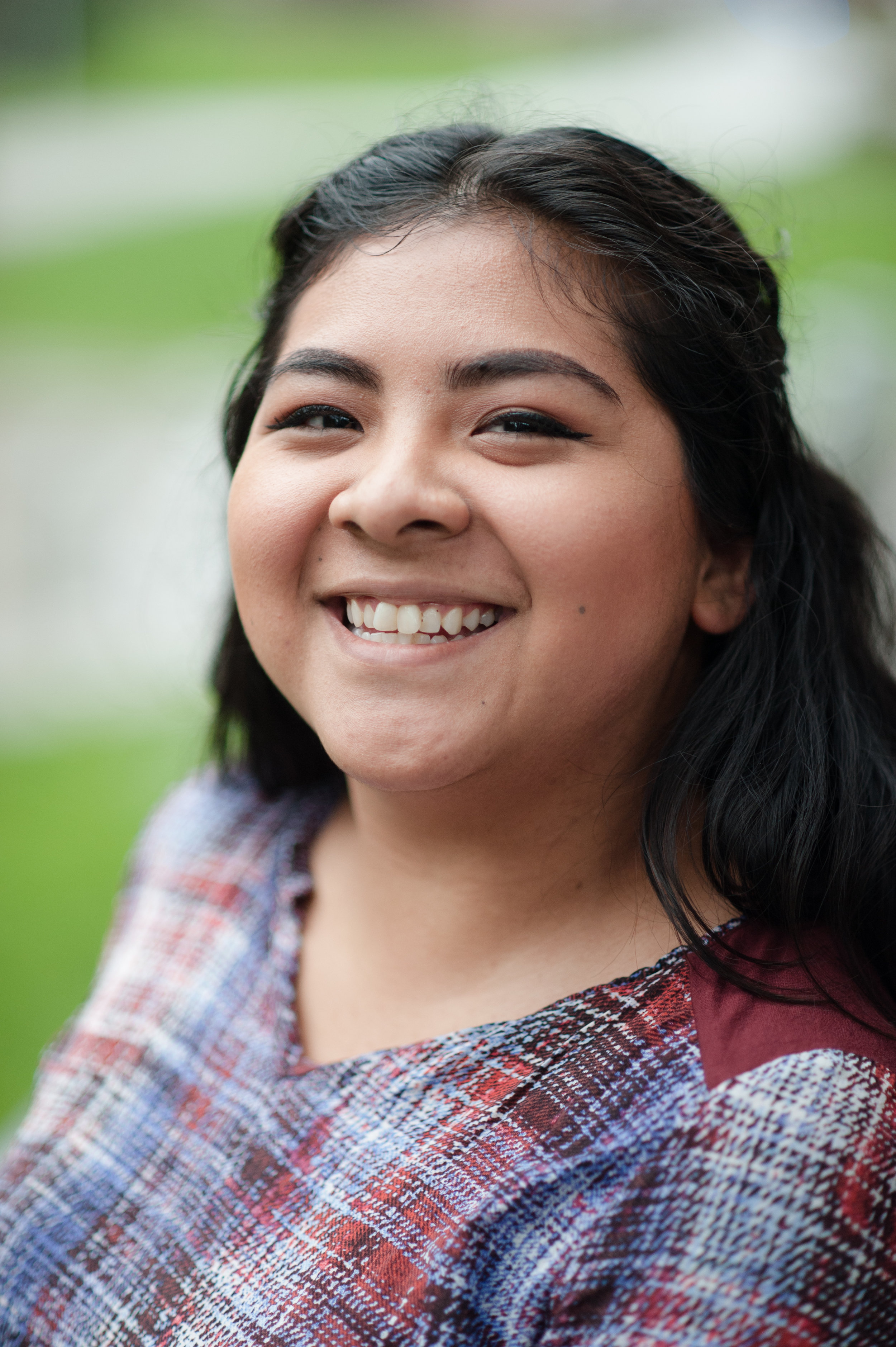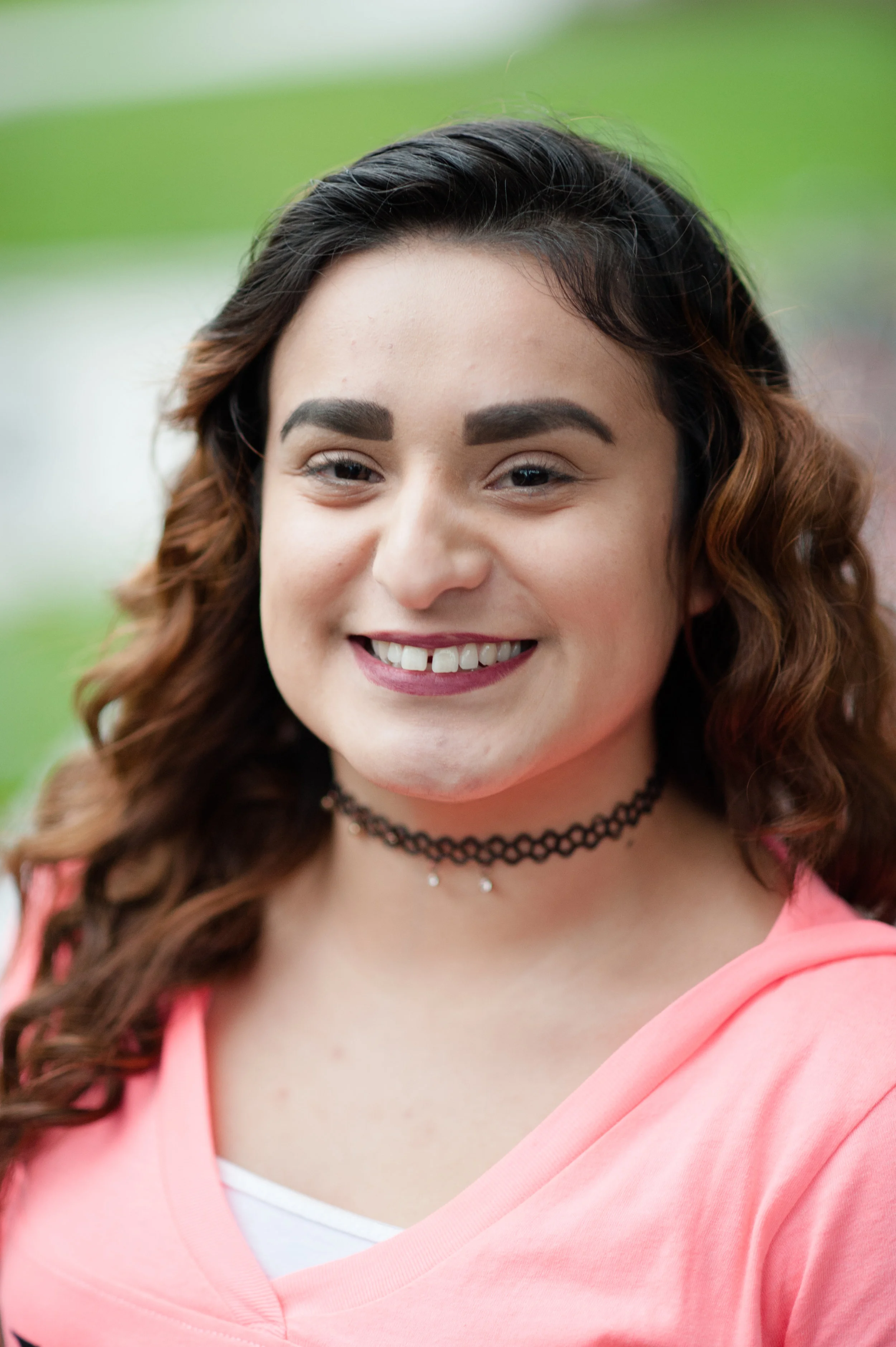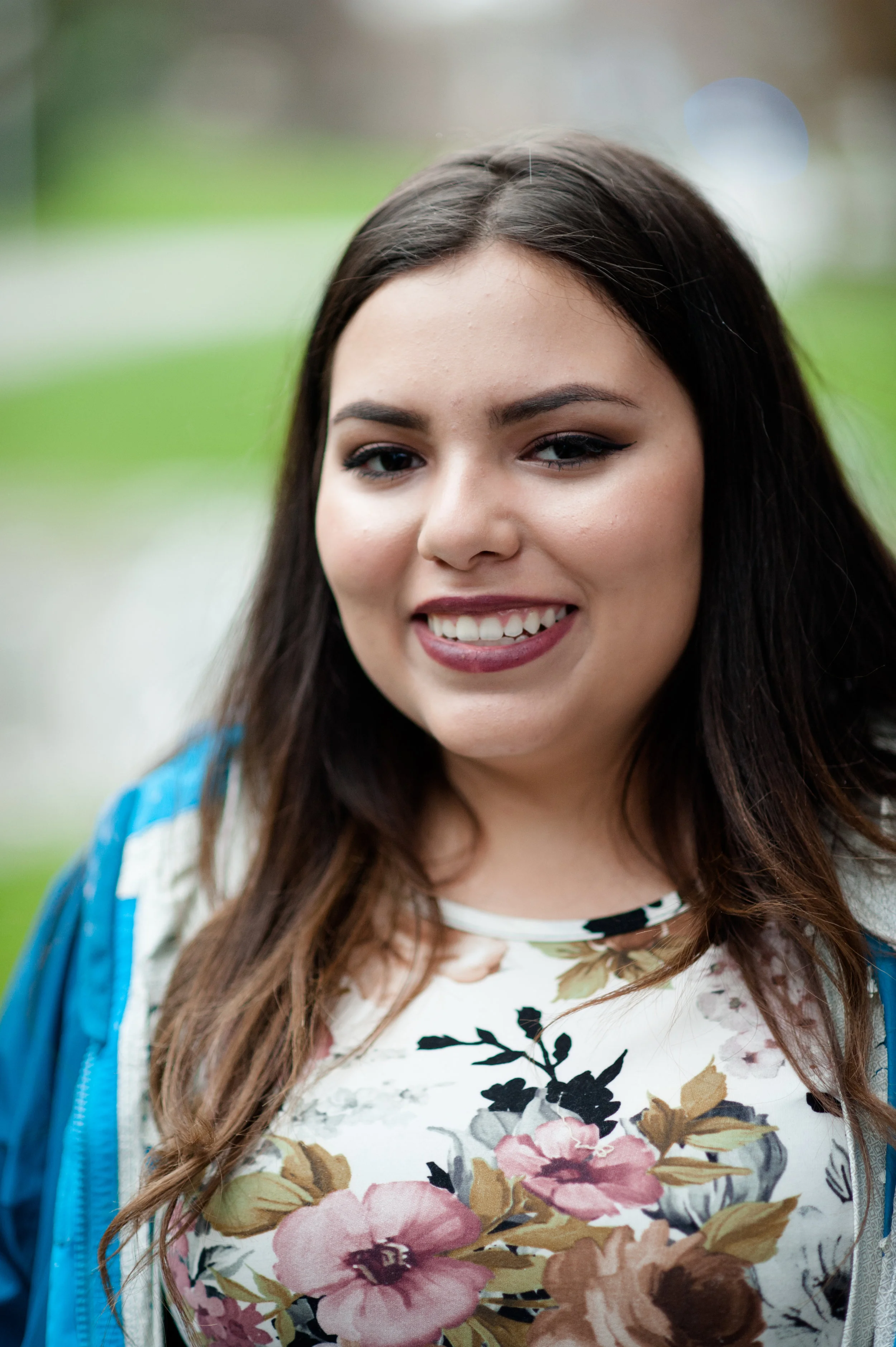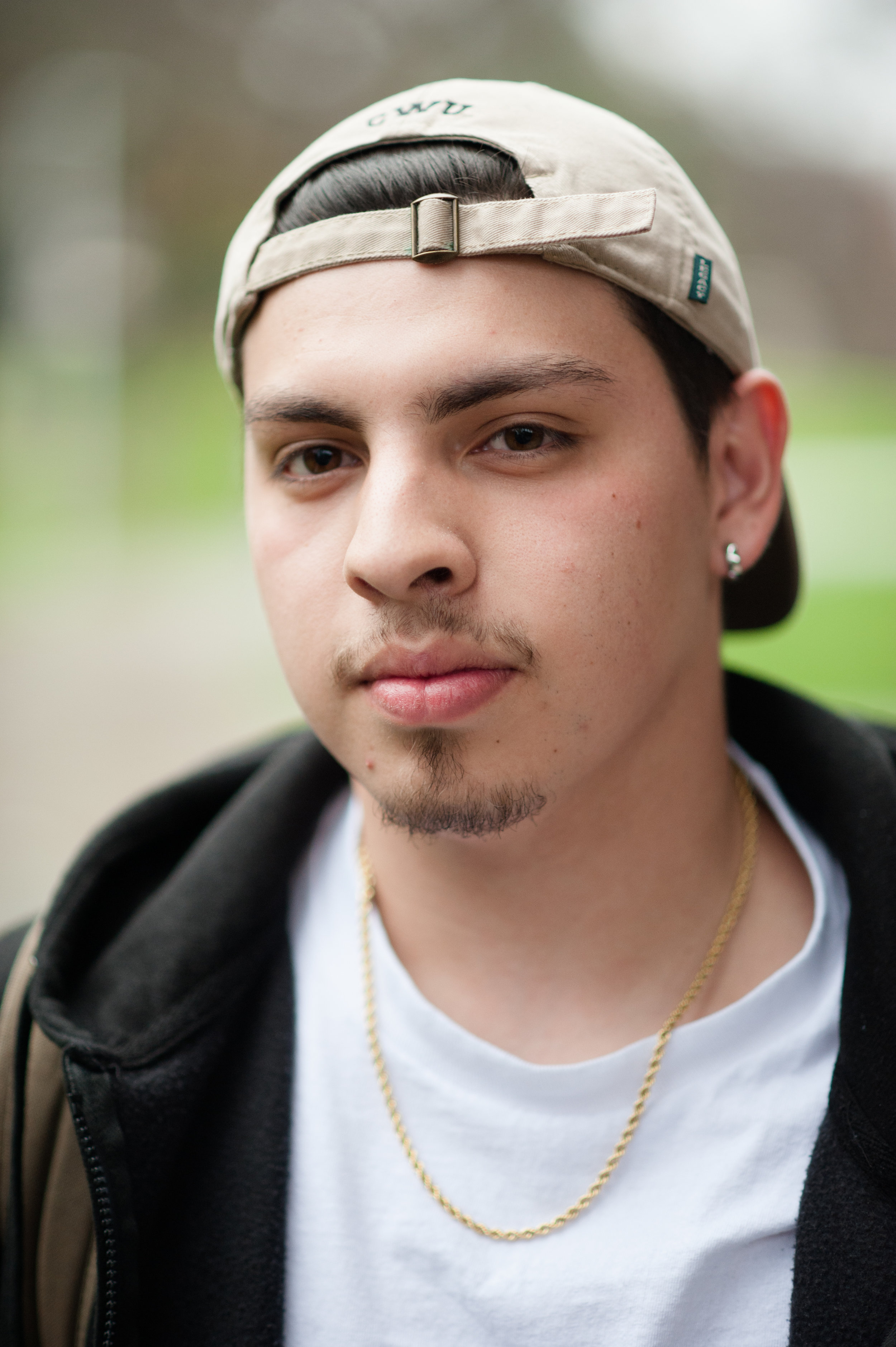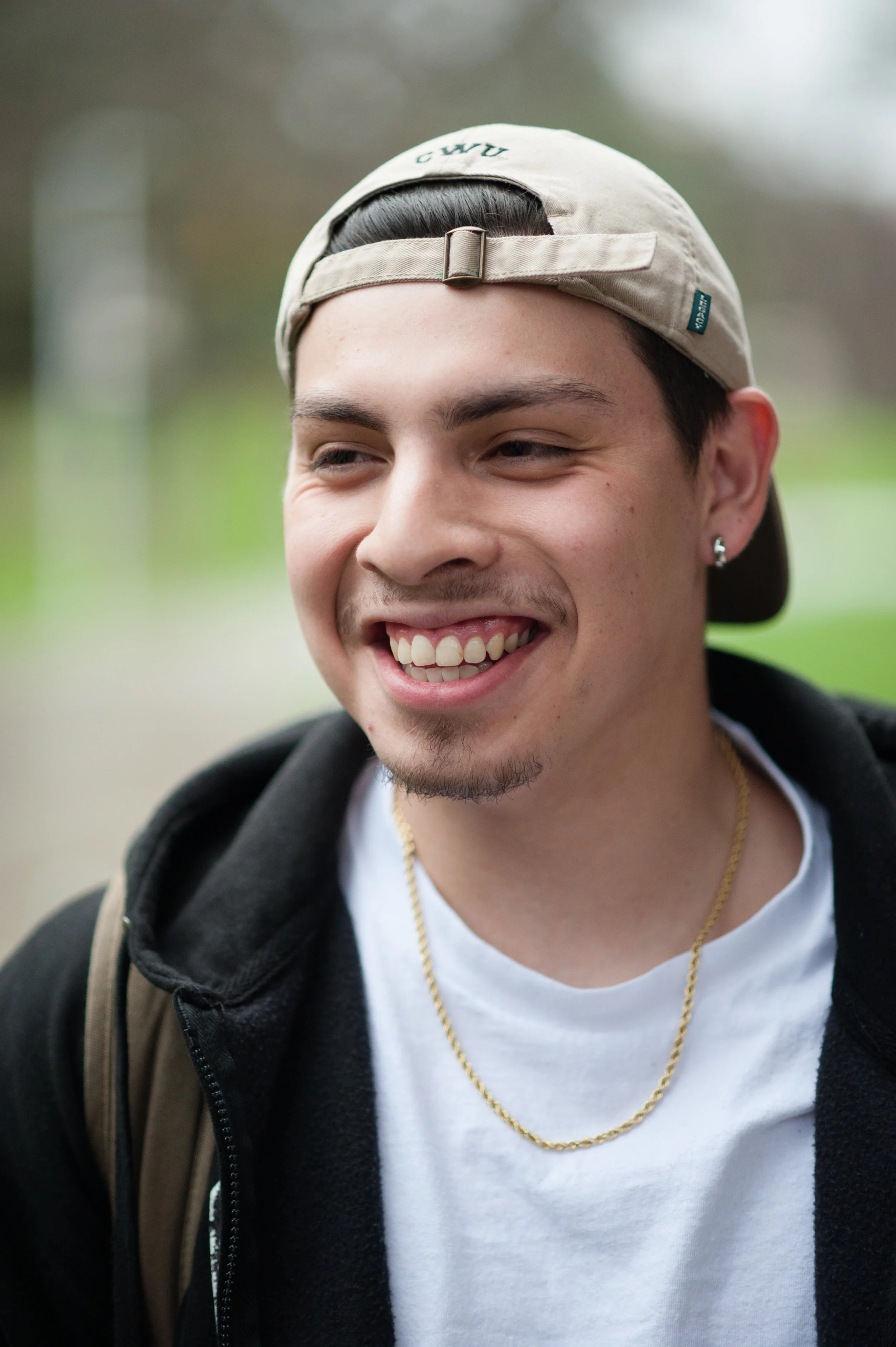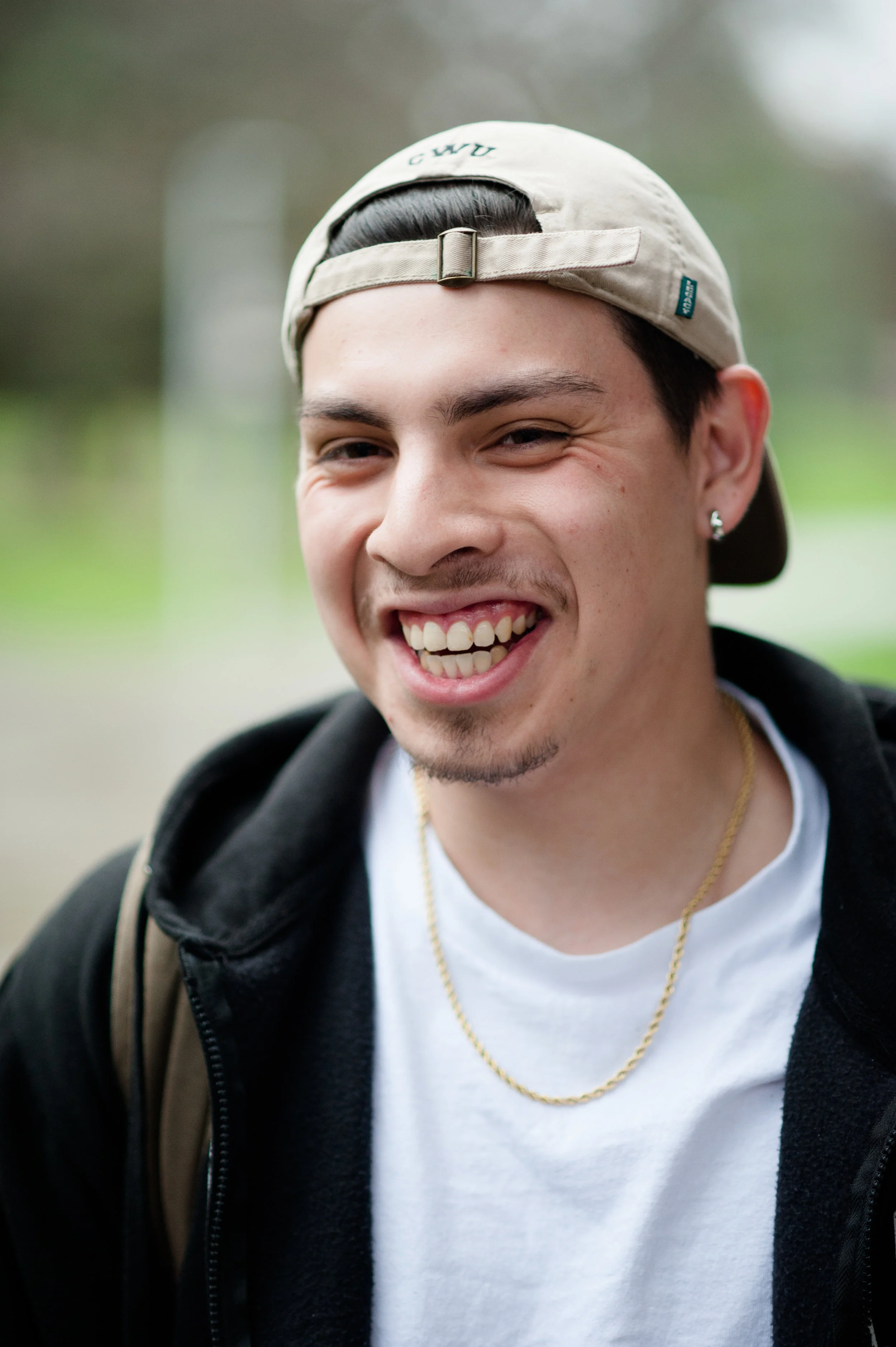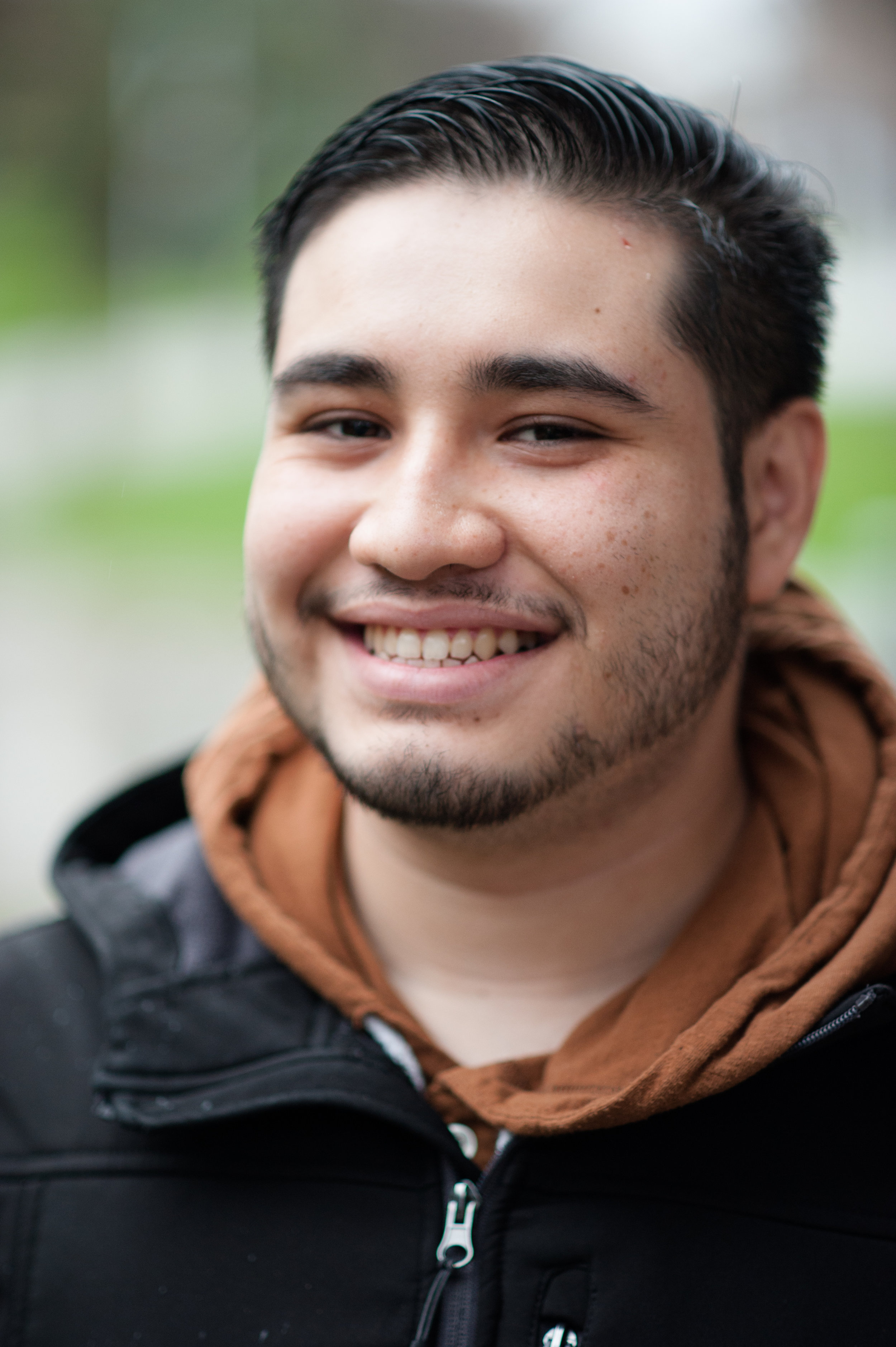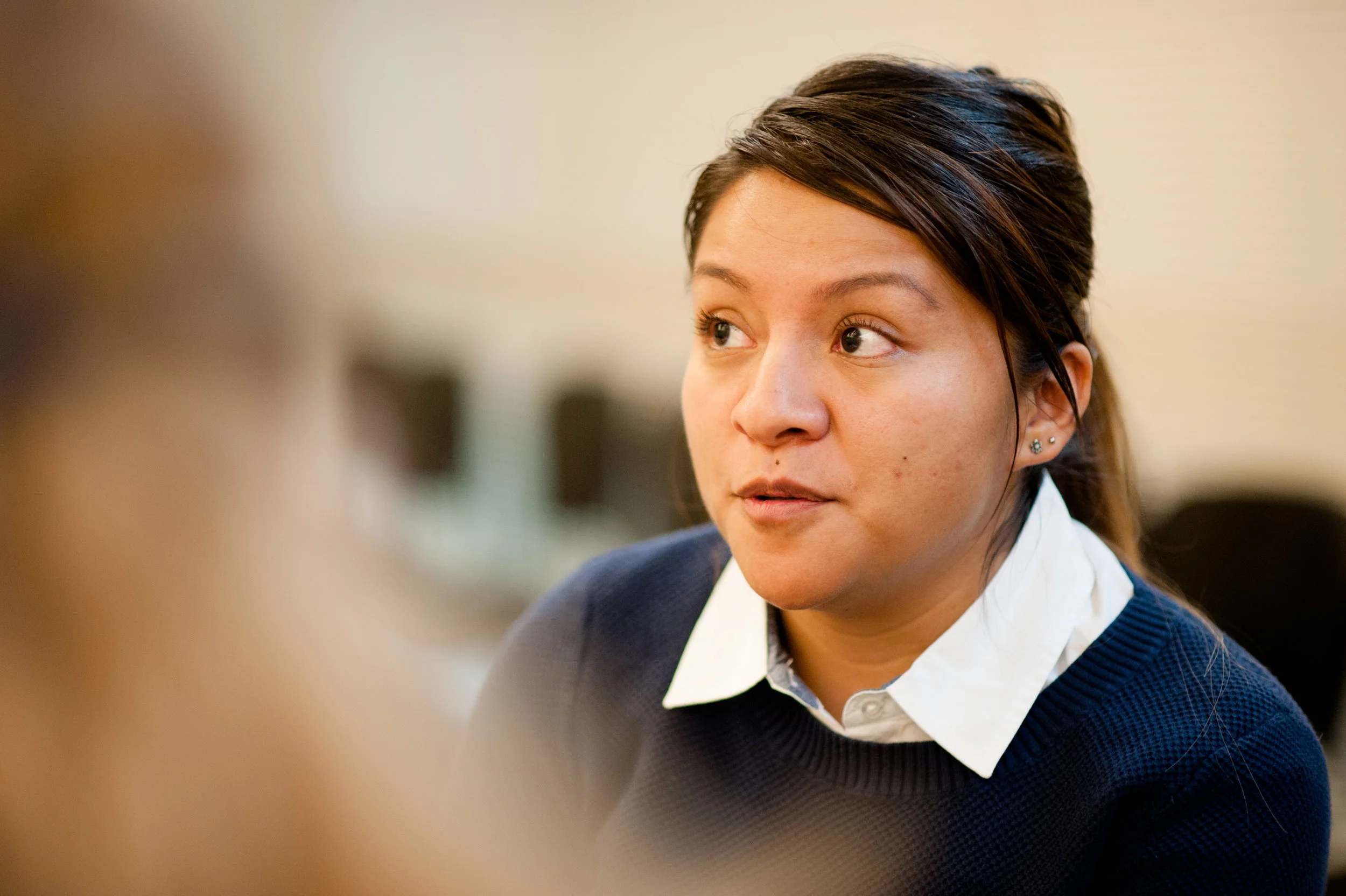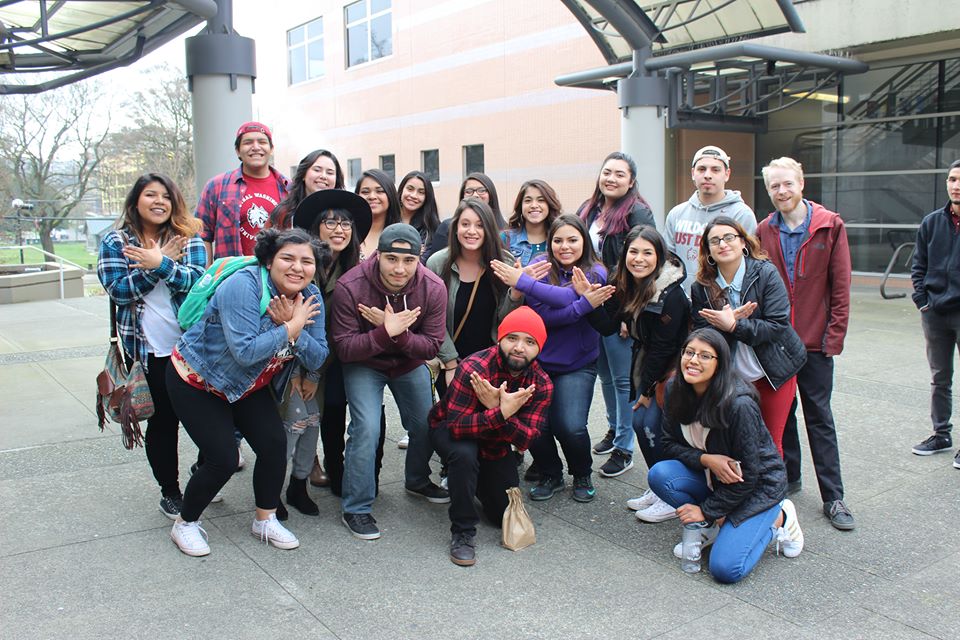LatinX: Finding Strength in Community
FINDING STRENGTH IN COMMUNITY
Story by Julia Moreno & Jocelyn Waite // Photos by Xander Fu
In June 2015, then-candidate for U.S. President Donald Trump said he wanted to build a wall along the U.S.-Mexico border to decrease the number of undocumented immigrants coming into the country.
In February, Juan Manuel Montes, a Deferred Action for Childhood Arrivals, or DACA, recipient was deported to Mexico, according to news reports. The DACA Act was proposed by former President Barack Obama and protected an estimated 750,000 individuals. President Trump has promised to protect the DACA individuals even though he has also promised to “crack down” on immigration.
“He said he wasn’t gonna touch DACA so that’s my hope—that he doesn’t touch it,” says Adilene Sanchez, senior with a major in math for secondary education and a minor in history, is a DACA student and very open about that fact. “I have to
accept that he’s the president so I can make him
responsible for the decisions and make him liable
for everything that he is saying.”
The climate of fear weighs heavily on the minds of many students at CWU, which some say makes it difficult to focus on school. Other students say they question whether it’s a good idea to even stay enrolled in classes. Roughly 15 percent of CWU students are LatinX, a term now used instead of Latino/a (see sidebar).
Rodrigo Renteria-Valencia, adviser to MEChA (Movimiento Estudiantil ChicanX de Aztlán)
and assistant professor in the Anthropology department, says the Trump administration created
two issues for people of color, immigrants, and undocumented individuals: an extreme uncertainty of future events and the looming fear of something “bad” happening.
Giovanni Severino, junior political science major and Alto Pacifico de Aztlán (APA) representative for student club MEChA, says the father of one of his friends was detained a couple of weeks ago while working in the fields. “Gladly she’s still coming to school. But I can’t imagine how every day she wakes up and she has that fear that, ‘Am I gonna be able to see my dad again?’ It makes a big impact in students’ lives,” he says.
Tanya Medina, junior political science major and a minor in law and justice, explains encounters she’s had on campus where people assume she’s undocumented because of her LatinX roots.
“I have had people approach me and tell me to go back to my country,” says Medina. “And yet,
they don’t understand—the majority of us are documented.”
Susana Camacho, senior double major in molecular and cellular biology and philosophy, says
there’s a fear of being targeted for the color of your skin. And there’s a perception of who people are because they are brown.
“Like ‘oh you’re this illegal alien’ [or] ‘you’re not even a human.’ It’s just really frustrating. ...I’m not willing to be stripped of my personhood just because someone decided that it was a good idea to raise hate against my group of people to win an election,” Camacho says. “It’s tough times to think about who you are and the way others see you.”
Lori Isley, directing attorney at Columbia Legal Services in Yakima, says she has noticed32
the fear of deportation has gotten worse over the last year. She works primarily with migrant farm workers.
“I think the fear is very palpable in our community,” Isley explains. “I have participated in a
number of community clinics recently in which many, many families wanted help with safety planning for their family in the event someone was deported. And the emotions are very, very raw as families think about the possibility of being separated. Never in my professional experience have I seen that level of fear, concern and sadness in our community.”
MEChA Board Member Severino reflects on the hypothetical situation of what would happen if he was ever faced with his parents being deported. He says he would feel pressured to go back and take care of his younger siblings, especially since
he is the oldest child.
“I think that has a very destabilizing effect on a family just having to plan for the possibility that you’re going to be separated from your children,” Isley says.
CLIMATE OF FEAR
The fear of local U.S. Immigration and Customs Enforcement, or ICE, raids is not completely
unfounded.
According to a Seattle Times article titled “30 arrested in Ellensburg immigration raid” by Shannon Dinniny, a Jan. 2011 ICE raid resulted in the arrests of 16 people on immigration violations and 14 others on criminal charges.
In the article, ICE officials explain that the criminal charges were obtaining and/or creating false U.S. citizenship documents. The article states none of the 14 people arrested on criminal allegations were found guilty of committing the crimes they were charged with.
In the case of an ICE raid happening on campus, Michael Luvera, chief of CWU police says
when campus officers come in contact with anyone, they don’t focus on the immigration status of that person.
“It makes no difference to us what anybody’s immigration status is,” he says. “If they call us and they need us, our job is to provide service and that’s the most important piece.”
“Our primary mission is not to do immigration or deal with immigration, so we don’t make
notifications to ICE in that sense. The jail might if we make an arrest but we don’t,” he adds.
Luvera says the only time the CWU police would assist ICE officials is if there was an official federal warrant, which means there’s a crime that’s been committed along with an immigration issue. If ICE uses a detainer, which is basically a request to hold someone, the CWU police do not have to comply.
“We would not let ICE into a residence hall, because we have keys, if they only had a detainer or if they just wanted to speak to someone about their immigration status,” he says.
Additionally, Luvera explains the only time CWU PD would ask about immigration status is if a student is from a certain country that requires 33 the officers to notify a consulate from that country to give them legal representation. It’s more if someone shares with the police department they’re from outside the U.S., then the police officers reach out to the consulates to give them the proper representation.
According to the Ellensburg Police Department procedures manual on immigration, Ellensburg police officers are prohibited from arresting individuals solely based on their immigration status unless the individual is part of an ICE investigation.
The EPD and the Kittitas County Sheriff ’s Office participate in the “Secure Communities Initiative,” which is administered by the Department of Homeland Security and the Department of U.S. Immigrations and Customs Enforcement to identify and remove “criminal aliens” in the community, according to the manual.
However, the EPD encourages individuals to report crimes regardless of their immigration status and the police officers don’t ask what someone’s status is when reporting a crime. Additionally, the EPD upholds constitutional and civil rights of everyone regardless of the immigration status of that individual.
The MEChA leadership board is also working towards giving students reliable information on what to do or who to talk to if ICE tries to detain a family member. MEChA also works towards creating a network of support for LatinX students, so if they need to talk to someone about any issues with immigration they can reach out to other members. Renteria-Valencia says MEChA is aims to give LatinX students a place where they feel like they are majority not the minority.
Severino talks about how he and another MEChA member, Cruz Adrian Juarez DeLaCruz, co-chair at MEChA and sophomore double major in political science and law and justice, work with local immigration law firms like the Northwest Immigrant Rights Project to educate themselves on what they, and other LatinX students, should know about deportation.
“We ask them questions and we ask them if they can teach us a little about what we should all know, ‘What are our rights?’ and ‘What are everyone’s rights?’” Severino explains. “By having that knowledge we can spread that knowledge...for our community.”
Severino believes others can be comforted by the knowledge of what their rights are, the processbehind deportation and that being detained does
not equal immediate deportation. He also stresses the importance of making sure, “that every detainee was detained legally.”
MEChA AND COMMUNITY SUPPORT
Even though there’s a lot of unknowns right now for many LatinX students, there’s one known place that will always provide support and where LatinX students are the majority, not the minority—that’s MEChA. This is a student organization centered around celebrating LatinX/ChicanX culture as well as inspiring political activism.
“In Lak’ech,” (below) is chanted at the beginning of every MEChA meeting by all the CWU
student members. It’s a mantra to love and respect
themselves and each other and it’s reflected in everything the club stands for.
Tú eres mi otro yo.
You are my other me.
Si te hago daño a ti,
If I do harm to you,
Me hago daño a mi mismo.
I do harm to myself.
Si te amo y respeto,
If I love and respect you,
Me amo y respeto yo.
I love and respect myself.
DeLaCruz says he feels like MEChA creates a family and makes CWU more of a home for LatinX students.
“For many first-generation students this is the place where you go and you find your connections. And you network within your community and they find you great role models and great opportunities,” DeLaCruz says. “MEChA has gotten me so many great opportunities, and if I hadn’t gone into any of these spaces...I probably would’ve dropped out two quarters ago.”
MEChA has been on campus for over 20 years. There are currently about 30 members in the club that come regularly. MEChA Adviser Renteria-Valencia says the goal for the club is to give students a space where they feel they can talk about issues they are facing as minority students.
“The intent is to give voice to those that are not represented in academic settings,” Renteria-Valencia says. “Out of this despair, out of raw fear, out of enormous amounts of uncertainty—we started to have these conversations in terms of the relevance of MEChA as a safe space for [students] to voice those concerns, those fears...but also in the process, start to craft a political voice. Start to craft a sense of empowerment over your destiny. That is the relevance of MEChA.”
Camacho says the community created by MEChA prevents LatinX students on campus from feeling isolated and it gives them a voice. She says her brother goes to school on the Westside and it has a small LatinX population.
“He just feels isolated because you don’t see people like you, you don’t see people who share your values and your culture and that’s necessary for you as a person. It’s important.” says Camacho
Severino reflects on how he can take his position in MEChA and make a difference in the LatinX community as a Latino in a leadership position.
“I feel like it’s not only my duty as a leader, but as a friend and a member of the LatinX community, to encourage other fellow Latinos to keep their heads up and keep on being positive...to keep them motivated,” Severino says. “To thrive, to pursue better lives, to continue their education or continue working.”
IMPORTANCE OF REPRESENTATION
CWU is also home to other Equity and Services Council organizations like SISTERS, Brother to Brother and the Black Student Union, which are all organizations that center around celebrating diverse cultures and community. MEChA members say they feel these organizations are important for students of color in particular.
“I feel like they’re vital to be honest with you. It helps keep your identity in touch,” DeLaCruz explains. “A lot of people get assimilated to the American culture and...there’s nothing wrong with that, but a lot of people become ashamed of who they are or where they come from. So organizations like MEChA definitely help keep that intact.”
Armando Ortiz, President of the Associated Students of Central Washington and a senior sociology major, describes his struggle to reach out to these students who don’t want to actively identify with their own culture and join clubs like MEChA, “they’re like ‘that’s not my thing’ and I get that a lot like, ‘I don’t do the Mexican thing.’”
“That’s really problematic, you can’t take your skin off...you’re still going to be looked at, that way,” Ortiz continues. “Why not be empowered and realize the things you can do to combat... systematic and institutional racism and discrimination”
DeLaCruz explains that MEChA is a necessity because CWU has a student population that’s predominantly caucasian and “wherever you go you’re going to be surrounded by the majority of white folks.”
“So, for that temporary hour and a half where you go to MEChA or you go to BSU, or you go to SISTERS, or you go to any organization with people of color—It just feels like you’re at home,” he adds. “Because for that one hour you get to become the majority. It just, it feels amazing. You feel at home. You feel safe.”
Even though MEChA strives to create a space for LatinX students to feel welcome on campus, several MEChA members say the lack of representation amongst faculty and staff can make it difficult.
Vanesa Alvarado is a first-generation student and a junior law and justice major with a minor in sociology. She says she wishes there were more professors who are people of color and possibly first generation as well. “There are not many professors in Central that are of color,” Alvarado says. “Getting to know them is really easy because of our similar backgrounds.”
Ortiz says he thinks there needs to be more recruitment of faculty and staff of color.
Ortiz says that one of the issues with recruiting people of color may be that Ellensburg is a small, rural community.
DeLaCruz agrees with Ortiz about the lack of representation on campus. He says he tries to help students of color and he’s a mentor to some, but he’s still trying to find someone he can confide in about the struggles he faces.
“You know trying to navigate college isn’t as easy as a student of color. It’s just difficult being a minority sometimes,” DeLaCruz says. “You never really know where to go. And you have people coming to you. Asking you where to go when you personally don’t know where to go yourself.”
LOOKING TO THE FUTURE
Many MEChA students advocate for the development of a multicultural center that can better address their needs.
Ortiz says even though Andrea Saavedra, ASCWU vice president for equity and community affairs, has opened up the back room in the ASCWU 36 offices and the Center for Diversity and Social Justice has created space for students of color, he feels
it’s not enough.
Ortiz explains he’s talked with President Gaudino and is part of the SURC expansion committee in order to make this dream of a multicultural center a reality. He says the committee is halted at the moment, but they have talked about what the SURC would look like if the multicultural center was added to the building.
“We deserve a lot more than 2,000 square feet,” Ortiz says in reference to SURC room 137 A/B and the Center for Diversity and Social Justice office.
MEChA Co-Chair Sanchez, says a multicultural center would give students of color a place to get information that is more specific to their needs.
For example, Sanchez recalls when she asked the financial aid offices about her Washington Financial Student Aid. “I called to ask them about my WAFSA and they were like, ‘oh, is that a scholarship?’” Sanchez says. “The financial aid offices didn’t even know what WAFSA was.” The WAFSA was created in order to provide aid to students who are unable to apply for federal financial aid because of immigration status.
Sanchez says she would want the multicultural center to be a space for Equity Services Council organizations and provide financial aid information for DACA students. It would also provide mentors as well as a safe place to discuss issues.
Around one-third of students at CWU are people of color. Many express how they cannot passively wait for their problems to be heard and addressed. They constantly fight to be recognized.
“Because we have a large Hispanic population of students here and we have a lot of activism going on, coming from MEChA and other groups. We come together and we demand to be acknowledged,” Camacho explains.
DeLaCruz describes the importance of organizations and spaces that are dedicated to students of color.
“These spaces allow me to be very vulnerable. And, I don’t get that in a lot of places,” DeLaCruz says. “So, being able to go there and be vulnerable and not always be attacked or just not accepted. “...being able to be accepted there is amazing because I’ve always, as a student of color on this campus, I’ve always looked for acceptance or like belonging. And these orgs, when I’m there for the little bit of time... I feel like I belong.”
Definition of MEChA
The student organization promotes higher education, culture and history for LatinX students, according to the MEChA official website. Each letter in the MEChA name symbolizes something the club stands for. According to the MEChA website, as well as Veronica Gomez Vilchis, assistant director at the CWU Center for Diversity and Social Justice, and Rodrigo Renteria-Valencia, adviser to MEChA and assistant professor in the Anthropology department, the name MEChA is broken down like this:
‘M’= Movimiento, which is the dedication to be socially active.
‘E’ = Estudiantil, which means it’s student driven.
‘Ch’ = Identity ChicanX, which was originally a derogatory, government term but was later reclaimed by the Mexican-American community in the 60s when MEChA was formed.
‘A’ = Aztlán, which is the mythical land from which ChicanX people originated, and is a way to acknowledge that they were here first.
LatinX: The ‘x’ in LatinX is a symbol of accepting all individuals without specifying masculine or feminine. LatinX is generally used for individuals who are either from Latin America or have familial ties to Latin America. It is a term that developed in the U.S.A.
ChicanX: The ‘x’ in ChicanX is a symbol of accepting all individuals without specifying masculine or feminine. ChicanX is generally used for individuals who are Mexican-Americans. However, not every Mexican-American uses this term to describe themselves. It is now more of a political label.
MEChA is inclusive of everyone not just Mexican-Americans: Gomez says MEChA at CWU promotes equity rather than equality. She describes equality as someone giving you and a friend a pair of shoes but the shoes are size ten shoes, which don’t fit either of you. She says equity is giving you and your friend pairs of shoes that fit you well, which is “leveling the playing field.” Gomez says MEChA is a family away from home and it’s a way to share experiences with people who also understand you and your culture.

